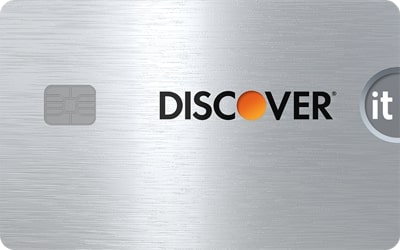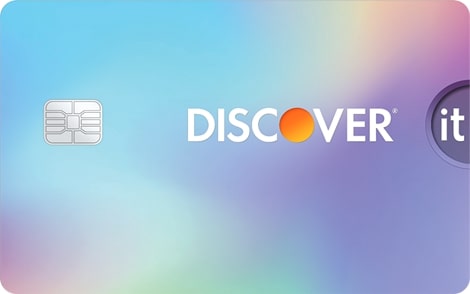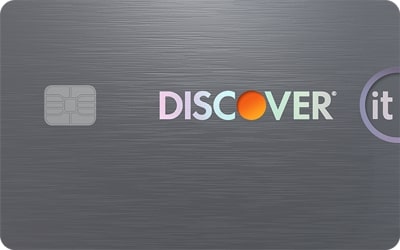Chase Freedom Student Card Review: No Longer Available, but Solid Incentives for Students
The Bottom Line
4.6
With decent rewards plus features that are friendly to those with no credit history, this student card gets a good grade for products in its class.


Rates, fees and offers
Rates, fees and offers
Annual fee
$0
Rewards rate
1%
Bonus offer
$50 Bonus after first purchase made within the first 3 months from account opening
Intro APR
N/A
Ongoing APR
APR: 19.99% Variable APR
Cash Advance APR: 29.99%, Variable
Penalty APR: 29.99%, Variable
Balance transfer fee
Either $5 or 5% of the amount of each transfer, whichever is greater.
Foreign transaction fee
3% of each transaction in U.S. dollars
More details from Chase
More details from Chase
- $50 Bonus after first purchase made within the first 3 months from account opening
- Earn 1% cash back on all purchases
- No annual Fee
- $20 Good Standing Rewards after each account anniversary for up to 5 years
- Earn a credit limit increase after making 5 monthly payments on time within 10 months from account opening when meeting credit criteria
- No minimum to redeem for cash back. Cash Back rewards do not expire as long as your account is open
- Free credit score with Chase Credit Journey
Pros and Cons
Pros
No annual fee
Earns rewards
New cardholder bonus offer
Cons
No bonus categories
Detailed Review
» This card is no longer available
As of June 2023, you can no longer apply for the Chase Freedom® Student credit card, so this page is out of date. See NerdWallet's Best Cards for Students for more options
For products in its class, the $0-annual-fee Chase Freedom® Student credit card gets good marks, thanks to its credit-building features, solid incentives and potential upgrade path to higher-end Chase cards.
While you must be a student to qualify, the card's underwriting is friendly to those with thin or nonexistent credit files. In fact, it's really the only starter credit card Chase offers. By comparison, other rewards-earning cards from Chase typically require at least good credit (FICO scores of 690 or above) — a high bar to meet for credit newbies.
With responsible card use, you may qualify for "Good Standing" incentives, a potential credit limit increase and perhaps, eventually, a product change to an even better Chase card.
Still, it's possible to find richer ongoing rewards on other student credit cards, and this card does charge a foreign transaction fee, meaning it's not ideal if you're studying abroad.
Chase Freedom® Student credit card: Basics
Card type: College student.
Annual fee: $0.
Bonus: $50 Bonus after first purchase made within the first 3 months from account opening.
Rewards: 1% cash back on all purchases.
Through March 2025, the card also earns 5% back on qualifying Lyft services purchased through the Lyft app.
Even though the Chase Freedom® Student credit card is marketed as a cash-back product, technically what you're earning are Chase Ultimate Rewards® points, which are worth 1 cent each when redeemed for cash back. (For example, 2,000 points equals $20.)
You can redeem your rewards for statement credit, a direct deposit into most U.S. checking and savings accounts, Amazon purchases, travel or gift cards. Redemption values may vary depending on which option you choose.
APR: The ongoing APR is 19.99% Variable APR.
Foreign transaction fee: 3% of the amount of each transaction in U.S. dollars.
Other perks:
"Good Standing" rewards: Accounts in good standing receive $20 after each account anniversary year for the first five years. (Your account must be open and not in default.)
A potential credit limit increase after making five monthly payments on time within 10 months of opening an account.
Payments reported to the three major credit bureaus (TransUnion, Equifax and Experian), which helps you build credit.
Travel and retail benefits such as trip cancellation insurance, purchase protection and extended warranty protection.
Compare to Other Cards
Benefits and Perks
Ongoing rewards, easy-to-snag sign-up bonus
Every bit of value helps when you’re juggling the cost of books, tuition, rent and everyday expenses. The Chase Freedom® Student credit card earns 1% cash back on purchases. Plus, if your account is in good standing, you may also qualify for an extra $20 after each account anniversary for the first five years.
And while student credit cards aren’t known for handing out sign-up bonuses, this one does. It's not the richest around, but it's quite easy to get. Earn a $50 Bonus after first purchase made within the first 3 months from account opening. Unlike with some other cards, you don’t have to meet a minimum spending requirement to earn it.
These kinds of rewards can potentially cover groceries for a week or some pizza delivery as you study for finals.
No credit history required
According to Chase, a credit history isn't an eligibility requirement for the Chase Freedom® Student credit card. However, you do need to be a student, and Chase may verify your enrollment status. Also, it's important to keep in mind that simply being a student doesn't guarantee that you'll be approved — and that goes for all student credit cards. And if you're younger than 21, you'll need to show proof of independent income when applying.
A report to all three credit bureaus
The Chase Freedom® Student credit card reports to all three major credit bureaus: TransUnion, Equifax and Experian. This is a must-have benefit for a starter card since these companies record the information used to calculate your credit scores.
Lenders look at those scores when weighing creditworthiness to determine whether you're likely to pay them back. A credit score of 690 or higher can open doors to lower interest rates on auto or home loans, for example. It can also help you qualify when applying for your first apartment.
A potential credit limit increase
The card also offers qualifying cardholders an automatic credit limit increase after making five monthly payments on time within 10 months of opening the account. Terms apply. A credit limit increase can have a positive impact on your credit score because it can reduce the percentage of available credit you’re using. This is known as your credit utilization ratio, and it factors into your credit scores.
A possible product change after before or after graduation
Another feature ideal for a student credit card is a path to upgrade to a regular credit card with the same issuer — ideally a card with better benefits and incentives. While Chase doesn’t offer an automatic path to upgrade, it does offer a possible route. After your first anniversary as a card holder, you can potentially switch (or product-change) your Chase Freedom® Student credit card to a different Chase card, depending on eligibility, a Chase spokesperson confirmed.
Drawbacks and Considerations
The Chase Freedom® Student credit card has a flat rewards rate that's in line with the 1% that some other student cards offer, but it's possible to find higher rates, introductory APRs, or other benefits.
Here are a few reasons why you might consider a different credit card:
Other cards offer more robust bonuses
For richer ongoing rewards, consider the $0-annual-fee Discover it® Student Cash Back, which offers 5% cash back in quarterly rotating categories that you activate, on up to $1,500 in spending per quarter (1% back on all other purchases). Previous categories have included restaurants, grocery stores, Lyft and Uber, to name a few.
There’s also a potentially healthy welcome offer, which Discover phrases this way: "INTRO OFFER: Unlimited Cashback Match for all new cardmembers – only from Discover. Discover will automatically match all the cash back you’ve earned at the end of your first year! There’s no minimum spending or maximum rewards. You could turn $50 cash back into $100. Or turn $100 cash back into $200." Discover notes that there's no FICO history requirement for this card.
Other cards offer higher ongoing rewards
You may also consider some of Capital One’s student credit cards. The $0-annual-fee Capital One Quicksilver Student Cash Rewards Credit Card offers 1.5% cash back on all purchases. Its sibling card, the $0-annual-fee Capital One Savor Student Cash Rewards Credit Card, is also an excellent choice for everyday purchases. It earns 8% back on Capital One Entertainment purchases and 3% back on dining, entertainment, eligible streaming services and purchases at grocery stores (excluding superstores like Walmart® and Target®). All other purchases earn 1% cash back. You won’t get an introductory offer with these options, but the rewards rates are generous in comparison to other student credit cards.
There's no 0% intro APR offer
If you're looking to finance a large purchase like textbooks or move-in expenses, a better choice might be the Discover it® Student Cash Back. It offers new cardholders a 0% intro APR on Purchases for 6 months and 10.99% intro APR on Balance Transfers for 6 months, and then the ongoing APR of 16.49%-25.49% Variable APR.
The $0-annual-fee Discover it® Student Chrome offers similar terms, and its rewards structure might be a little easier to keep track of. The card earns 2% cash back at gas stations and restaurants on up to $1,000 in combined purchases each quarter. All other purchases earn 1% back. You don’t need a FICO history to qualify for it.
It's not ideal if you're an international student
Like most credit cards, the Chase Freedom® Student credit card requires a Social Security number or an ITIN to apply. This requirement may present an obstacle for some international students. In that case, consider an option like the Deserve® EDU Mastercard for Students, which doesn't require a Social Security number from international students. The issuer can use its own underwriting process to evaluate applications based on alternative data. The card earns 1% cash back on all purchases, and it also offers some perks like one year of Amazon Prime for those who qualify and a cell phone protection benefit. It has a $0 annual fee. Terms apply.
It's not a good travel companion abroad
The Chase Freedom® Student credit card isn't the best fit for U.S. students who intend to study abroad. While it's widely accepted internationally by merchants as part of the Visa payment network, it charges a 3% foreign transaction fee, which can add up.
Other credit cards skip this fee. Capital One, for instance, doesn't charge foreign transaction fees on any cards.
To see how the Chase Freedom® Student credit card stacks up, see NerdWallet's list of the best credit cards to get.
How To Decide If It's Right For You
The Chase Freedom® Student credit card offers incentives for responsible account management, giving you the training wheels you need as you’re getting started. And it's an excellent entree into the Chase portfolio of credit cards.
But if you're looking for richer ongoing rewards or you intend to study abroad for several months, look to other student credit cards.
Plus a 0% intro APR period
The $0-annual-fee Discover it® Student Chrome earns 2% cash back at gas stations and restaurants on up to $1,000 in combined purchases each quarter (1% back on other purchases). It may also come in handy if you need to finance a large purchase. It offers 0% intro APR on Purchases for 6 months and 10.99% intro APR on Balance Transfers for 6 months, and then the ongoing APR of 16.49%-25.49% Variable APR.
Looking For Something Else?
Methodology
NerdWallet reviews credit cards with an eye toward both the quantitative and qualitative features of a card. Quantitative features are those that boil down to dollars and cents, such as fees, interest rates, rewards (including earning rates and redemption values) and the cash value of benefits and perks. Qualitative factors are those that affect how easy or difficult it is for a typical cardholder to get good value from the card. They include such things as the ease of application, simplicity of the rewards structure, the likelihood of using certain features, and whether a card is well-suited to everyday use or is best reserved for specific purchases. Our star ratings serve as a general gauge of how each card compares with others in its class, but star ratings are intended to be just one consideration when a consumer is choosing a credit card. Learn how NerdWallet rates credit cards.
About the author

Melissa Lambarena
Senior Writer & Content Strategist


